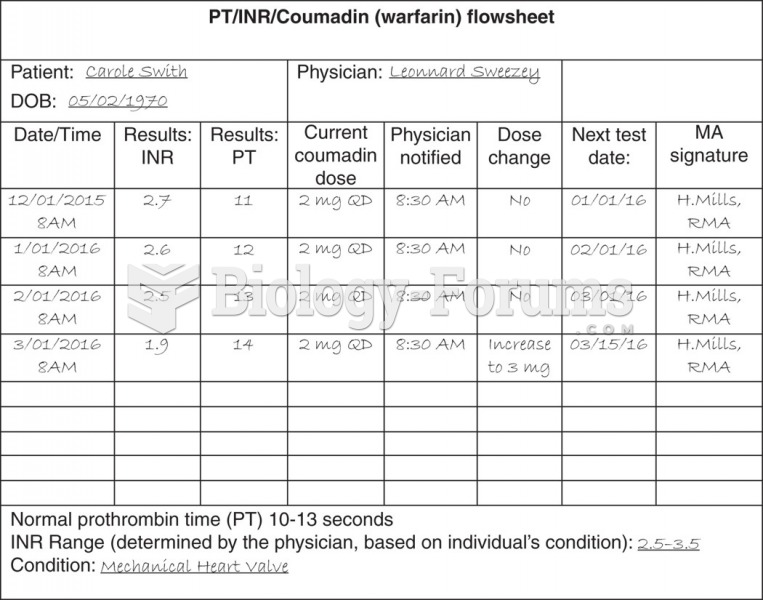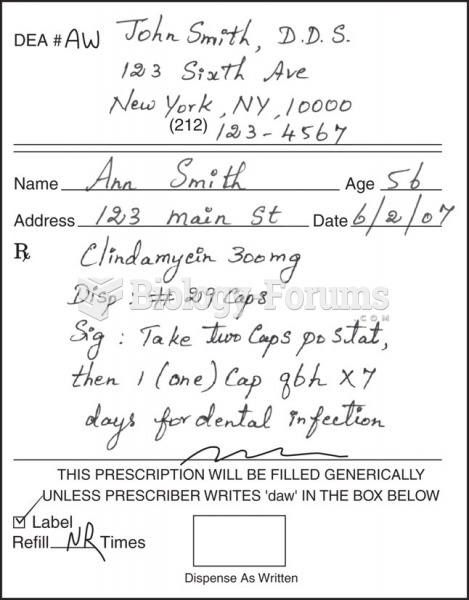|
|
|
Dogs have been used in studies to detect various cancers in human subjects. They have been trained to sniff breath samples from humans that were collected by having them breathe into special tubes. These people included 55 lung cancer patients, 31 breast cancer patients, and 83 cancer-free patients. The dogs detected 54 of the 55 lung cancer patients as having cancer, detected 28 of the 31 breast cancer patients, and gave only three false-positive results (detecting cancer in people who didn't have it).
Bacteria have been found alive in a lake buried one half mile under ice in Antarctica.
More than 34,000 trademarked medication names and more than 10,000 generic medication names are in use in the United States.
Blood in the urine can be a sign of a kidney stone, glomerulonephritis, or other kidney problems.
Approximately 25% of all reported medication errors result from some kind of name confusion.







